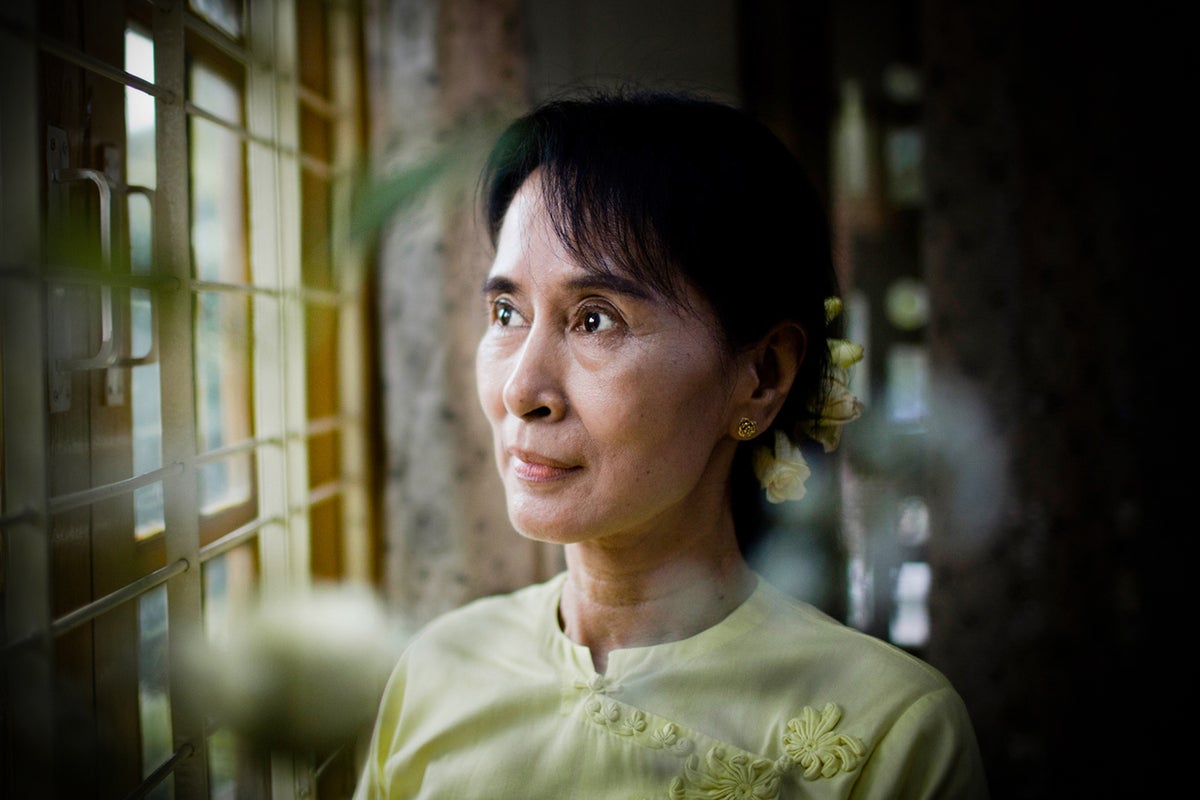Sir Keir Starmer has been urged to personally intervene in the “unspeakable tragedy” developing in Myanmar and to meet the British son of Aung San Suu Kyi, who has been imprisoned by the country’s military junta.
The call comes in a new report which highlights the plight of Ms Suu Kyi and 22,000 other political prisoners, after a coup which overthrew her democratically elected government four years ago.
It also shines a spotlight on the army’s airstrikes and ground attacks against civilians and details atrocities including massacres, beheadings, executions, rapes and tortures.
Nobel Peace Prize winner Ms Suu Kyi, who is facing 27 years in jail, became a deeply divisive and controversial figure after refusing to speak out on her country’s extreme violence against its Rohingya Muslim minority.
In an Independent TV documentary about her fall from grace, entitled Cancelled: The Rise and Fall of Aung San Suu Kyi, William Hague, who welcomed her to London in 2012 said it was possible to be critical of the country’s former leader, “but also say we should be campaigning for her release”.
Earlier this year David Lammy issued a historic and impassioned plea for her freedom in this newspaper. In a major intervention, the foreign secretary for the first time made a direct appeal to the military to let her go and give the country’s people “the peace and democracy they deserve”.
Tim Loughton, a former Tory minister and the chair of the Conservative Party’s Human Rights Commission, which compiled the report, said its findings were an “urgent wake-up call for action to address the egregious human rights crisis in Myanmar, which has been compounded over the past two months by the devastating earthquake which hit the country on 28 March.
He said: “The United Nations High Commissioner for Human Rights has described the situation as ‘an unspeakable tragedy’, hence the title of the report.
“He has also called it ‘a never-ending nightmare’ which has seen ‘inhumanity in its vilest form’ leading to ‘unbearable levels of suffering and cruelty’. It is high time the international community, led by the United Kingdom, steps up its efforts to bring this nightmare to an end and hold the perpetrators of such inhumanity, cruelty, barbarity and criminality to account.”
Among those who testified to the commission were Ms Suu Kyi’s son, Kim Aris, her former economic policy adviser, Professor Sean Turnell, who spent 650 days in jail in Myanmar and the UN’s special rapporteur on human rights in Myanmar, Tom Andrews.
The report calls on the government to “stand more vociferously and proactively by the people of Myanmar at a time where the country experiences an unspeakable tragedy”.
It also calls for international action to enforce a global arms embargo and cut financial support to the military dictatorship.
The commission called on the UK to urgently convene a UN Security Council session on Myanmar.
Mr Lammy joined three former British foreign secretaries in calling for Ms Suu Kyi’s release, including Lord Hague, who also described her as a “political prisoner on trumped-up charges” imprisoned because she was a “force for democracy”.
Ms Suu Kyi raised two children, Kim and his brother Alexander, in the UK after studying at Oxford and marrying a British academic, Michael Aris.
She returned to Myanmar in 1988, initially to nurse her sick mother before becoming swept up in the pro-democracy movement in the country. Between 1989 to 2010 she became famous around the world as she spent nearly 15 years under house arrest.
But after elections in 2015, the junta allowed her to become the country’s de facto leader, although only if they kept control of key ministries, including home affairs, defence and border control, as well as the military budget.

